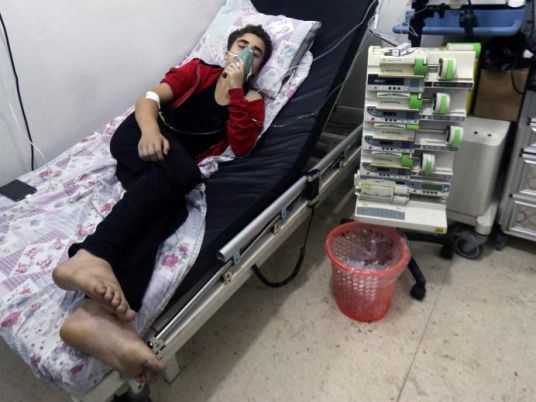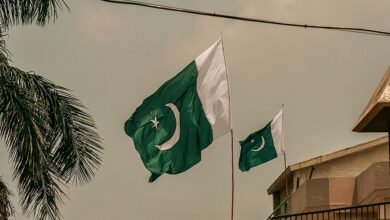
Gernot Erler, the German government’s point man on Russia, urged the United Nations on Thursday to seek sanctions against Syria for two chlorine gas attacks on civilians, despite Moscow’s threat to veto such a measure.
"The United Nations should prepare clear sanctions, despite the Russian veto threat," Erler told Germany's Neue Osnabruecker Zeitung in an interview.
"Moscow is obviously more concerned about being seen as a friend of the criminal Assad regime than in taking joint action and sanctions against this provocative treaty violation," Erler, a member of the Social Democrats, the junior partner in Chancellor Angela Merkel's coalition, told the newspaper.
An inquiry by the United Nations and the Organization for the Prohibition of Chemical Weapons (OPCW), unanimously authorized by the 15-member Security Council, also found that Islamic State militants used sulfur mustard gas.
"The findings are clear," Erler said. He added that Russia needed to decide if it wanted to risk international isolation in this case.
Russia, a close ally of Syrian President Bashar al-Assad in his war with rebels fighting to topple him, and China have previously protected the Damascus government from Council action by blocking several resolutions, including a bid to refer the conflict in Syria to the International Criminal Court.
The Security Council on Tuesday began to discuss whether to impose sanctions on people or entities linked to two chlorine gas attacks on civilians that the United Nations and the global chemical weapons watchdog blamed on the Syrian government.
The report's results have set the stage for a Security Council showdown between the five veto-wielding powers, likely pitting Russia and China against the United States, Britain and France over how to respond.
Russian U.N. Ambassador Vitaly Churkin said he is prepared to work with the United States on a response, but that first the council members must exchange analyses of the report, which he described as very complicated.
Syria agreed to destroy its chemical weapons in 2013 under a deal brokered by Moscow and Washington. The Security Council passed a resolution that said in the event of non-compliance, including "the use of chemical weapons by anyone" in Syria, it would impose measures under Chapter 7 of the U.N. Charter, which deals with sanctions.
The Security Council would need to adopt another resolution to impose targeted sanctions — a travel ban and asset freeze — on people or entities linked to the attacks.




